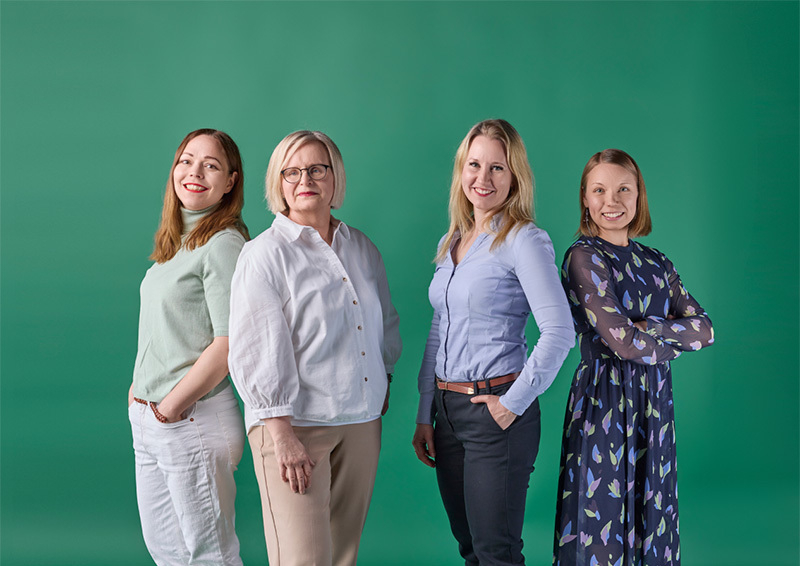What does a functional work community mean to each of us? Let's dive right into the skills we need in our professional lives to foster a positive work environment for everyone.
"I am a solid professional in my field, and that should be enough!” “This is the way I am, take it or leave it!”
Familiar Phrases? It is not uncommon to encounter an assumption that when one's professional skills are in order, one can be exactly who one wants to be at work.
No man is an island
We never truly work in isolation, as we engage with client communities or collaborate with stakeholders. Even if the organizational work community doesn't exist or is a small one. At the same time, to successfully complete client work, projects, or tasks, one must be able to manage their work effectively.
Key skills for managing your work include recognizing your expertise and knowing how to leverage your strengths to complete tasks within deadlines. The ability to seek assistance when work becomes stagnant or when deadlines seem to slip away.
In the workplace, multidisciplinary collaboration may be necessary, requiring the contributions of professionals from various fields to ensure tasks are completed efficiently and with high quality. A colleague may only be able to complete their work after I have fulfilled my responsibilities first.
Community skills enable us to function effectively in these diverse environments. Ideally, multidisciplinary communities help us learn and grow in our work. The alternative is to struggle alone and try to navigate every possible situation by ourselves.
The core of community skills: collaboration
We need collaboration skills to bring our expertise to the workplace and allow others to do the same. This enables us to share tasks and responsibilities within the team.
Interpersonal skills help us showcase our expertise, express our needs, raise concerns when necessary, and communicate disagreements respectfully. We understand what constitutes appropriate behavior and can empathize with others during difficult times.
In conflict situations, we need the ability to express our feelings and thoughts so that others can understand what is offensive in the situation. This enhances our ability to view the situation from another's perspective, helping us understand our role in conflict situations.
To resolve conflicts, we must listen to others' viewpoints and seek change collaboratively. We can defend our perspectives while also considering others' opinions to find common ground on how tasks are managed or shared, and how to cooperate even in disagreement. Flexibility is crucial in these situations.
Are you feeling good at work because of the good atmosphere or is there a good atmosphere because you are there?
We often talk about a good work atmosphere, but what does it entail?
A good work atmosphere cannot be forced or simply fall into our laps! It is created collectively and is built on:
- Appreciation and respect for each other's professional skills
- Good interaction
- Fair treatment of others
In a positive work atmosphere, individuals do not fear or hesitate to express their opinions. Diverse perspectives on a good atmosphere may be present and are allowed. For one person, a good atmosphere may mean smooth work processes, timely task completion, and achieving goals. For another, it may involve a cheerful environment filled with joy, encouragement, and support.
To achieve this, we need not only professional skills but also community skills and effective workplace practices.
How should employers' directive authority be reflected in everyday work?
A supervisor has the authority to manage and oversee work, known as directive authority. Occasionally, some may feel that a person has become a "target" for their supervisor. This can happen, but sometimes we lose sight of what the employer's rights and obligations truly are.
The employer has the right to decide on various aspects of work, including:
- Work Objectives
- Scope and Quality of Tasks
- Methods of Work
- Job Descriptions
- Working Hours
- Work Locations
Of course, these decisions must consider the terms outlined in the employment contract. The employer is also obligated to adhere to labor laws, collective agreements, the employment contract, and other agreements.
Workplace skills include being aware of what directive authority means and understanding the relevant legislation and agreements that govern our working lives, even if detailed knowledge is not necessary.
Effective leadership involves trusting employees' abilities to perform their tasks, guiding their skills, and evaluating performance fairly and clearly against agreed-upon objectives.
Workplace skills also encompass the ability to maintain one's own well-being, as without this, we cannot utilize our expertise or other necessary skills in the workplace. It is true that employers have a responsibility to reduce employee workloads. Community skills involve the ability to communicate with supervisors when the workload becomes excessive. It is then the supervisor's duty to alleviate the workload and ensure that measures are effective in reducing stress. A burned-out supervisor or employee benefits no one.
Thriving community skills
What if your community skills are excellent, but you work in an environment where these skills cannot be utilized due to a lack of collaboration—an environment where everyone is solely responsible for their own success?
In a functional work community, the best part is that you can ask for help from colleagues who do the same work and have already solved similar problems.
You can identify your strengths by observing what others ask you for help with or how you handle problem situations. In a functional work community, it is clear what decisions you can make independently and who is responsible for other matters.
Using community skills is successful in an environment where interaction occurs. Collaboration is motivating when interaction is pleasant and facilitates task completion. Clear, realistic, and achievable goals enhance collaboration.
Community skills flourish when the work community looks to the future, draws from the best practices and working methods of the past, and cherishes important traditions. New employees can introduce new practices if they are encouraged to share improvement suggestions openly.
Do you feel offended if a new employee suggests that tasks could be handled differently? Do you dismiss such suggestions by saying it has already been done or that it won't work?
When work is done collaboratively, disagreements may arise, potentially leading to conflicts. In a good work community, these and other issues are resolved with those affected. The community's rules are clear and support the fulfillment of the core mission and smooth collaboration.
The Impact of Customers on the Work Community
Without customers, there are no work communities. Therefore, in a functional work community, the needs of customers and changes in the operating environment are recognized, leading the community to develop its products and services accordingly. Leadership is consistent, fair, and equitable.
Work communities can influence how work is conducted, with the customer perspective at the center of all activities.
Your expertise shines when there is a peaceful work environment, and you receive support from supervisors and colleagues when needed, allowing you to support others in their work as well.
Published 26.11.2024

